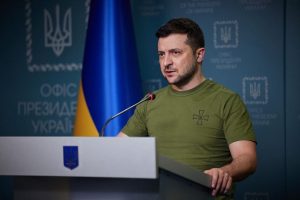According to both the earlier Congress-led UPA and incumbent NDA governments, the Central government was not in favour of making military training compulsory for the country’s youth. The BJP-led NDA government, in its first Parliament session in 2014 made its stance clear on the issue which was similar to that of UPA’s. The reasons primarily are :-
I. India being a democratic Republic, its constitution does not provide for compulsory military training and people are free to choose their professions. Compulsion in respect of military training is thought to be against the democratic ethos.
Advertisement
II. Military training to all the youth may also lead to militarisation of an entire nation. Given the sociopolitical and economic conditions, it is highly undesirable, lest some of the unemployed youth trained in military skills join the ranks of the undesirable elements.
III. It would involve huge expenditure.
However, a Parliamentary Standing Committee some time back recommended five years of compulsory military service for those seeking a subsequent job with the government. The committee felt since there have been severe shortage of officers and men in the Armed Forces, its recommendation would help plug the personnel shortage.
Incidentally, countries like Switzerland, South Korea, Brazil, Israel, Turkey, and Greece already have compulsory military service. Sweden has brought back military service this year, after an eight-year gap. France’s president, Emmanuel Macron is also planning to restore compulsory military service, which was phased out between 1996 and 2001 and there is already a churning in favour of such service in America, Britain and elsewhere.
Singapore President Halimah Yacob while visiting the National Service Gallery at Singapore Armed Forces Basic Military Training Centre this year said, “I have two sons who completed national service……National service really contributed towards their growth and their development as individuals, which is really important for our society. I am sure many parents will also feel the same, seeing how their sons have been transformed, and how their sons have grown and developed, which is not only of benefit to defence, but also to society as a whole and also to themselves and their families.”
Though there are countries with mandatory military service for both genders, in Singapore however national service is a statutory requirement for all male Singaporean citizens and second-generation permanent residents. They are to serve a two-year period as National Servicemen either in the Singapore Armed Forces (SAF) or Singapore Police Force (SPF) or Singapore Civil Defence Force (SCDF). Failure to perform national service is taken into account when residents later apply to study or work in Singapore, or when they try to have their permanent resident status reinstated.
Certainly, the Parliamentary Committee on Defence’s recommendation for compulsory military service is significant to make up for the shortage of personnel in the armed forces. But that apart, it’s significant for several other critical reasons. In our country, when different sections are increasingly demanding their share of scarce resources and benefits, and people have lost their ability to understand one another, let alone work together toward greater public good, it’s time to introduce compulsory military training or national service. It’s pertinent further as we diverged from our moral and political responsibilities.
Military training is not necessarily linked to combat. However, military service certainly is among the most profound forms of service to the nation. And therefore, service of this nature is a good social investment.
While the modalities need detailed deliberations, for example whether service period be made for months or years, extent of military training/knowhow to be provided and mode of implementation etc., such a structured opportunity will surely let our youth feel needed and capable. Also, these youths should be considered priority candidates at every stage of life.
And if the ultimate goal is to help foster integration and national unity, help revitalise youth’s desire to serve their country and help reconceptualise citizenship as endowing individuals not just with rights but with obligations, then it would be just to bring in military/national service.
For a country that prides itself as one of the oldest civilizations in the world and a multi-dimensional society, but divided economically, politically and culturally it’s about time youth from all walks of life come together and live, train and socialise closely with one another for a specific period for a greater cause.
Praful Bakshi, Defence advisor, in an article in India Legal wrote “Each and every soldier contributes towards building and shoring up the democratic infrastructure of the State. …Equally, the average citizen wants capable and strong people to run the country. It would perhaps be ideal for every citizen to have the attributes and qualities of soldiers who guard the nation. He would be physically fit, motivated and armed with the right qualities for leadership and managerial roles. If these citizens then become political leaders, it would be against this background.”
Therefore, if we want to make India great again, military service, considered a great leveller, should be made a universal commitment to help build future capabilities consistent with the demographic reality, help remove civilian-military disconnect as also help strengthen civil society.
Finally, introduction of compulsory military service will advance a culture of ‘whole-nation’ approach among citizens and prevent the emergence of internally fractured society lacking the will and ability to assert itself against country’s many internal and external threats.
“No man is entitled to the blessings of freedom unless he be vigilant in its preservation.” — Gen. Douglas MacArthur
(The writer is a former Deputy General Manager of India International Centre and General Manager, International Centre Goa)











